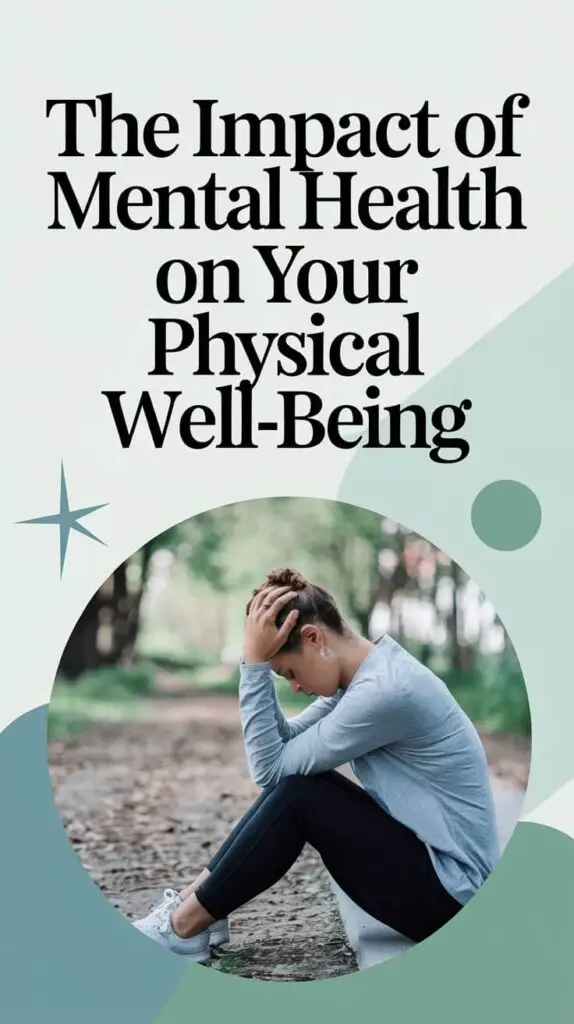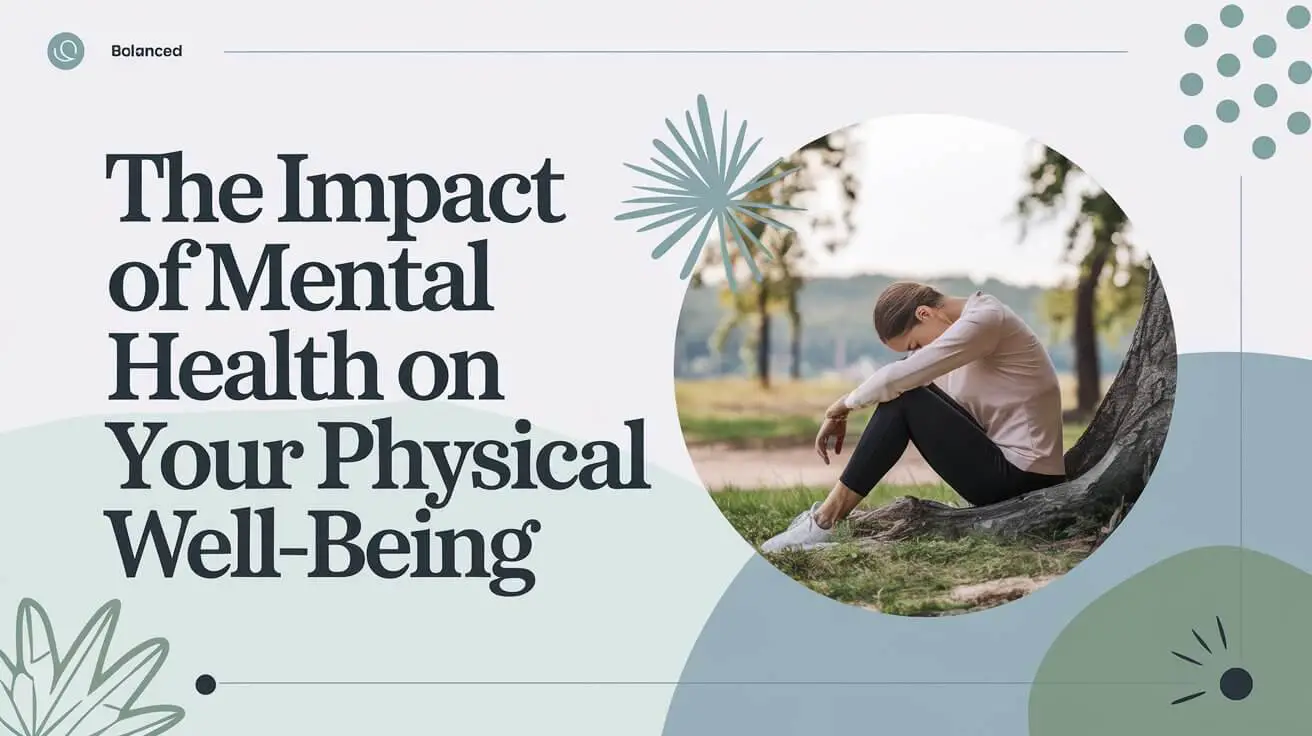It’s easy to think of mental health and physical health as two separate things. I used to believe the same. When I felt stressed or anxious, I thought it only affected my mood. But over time, I started noticing physical symptoms – headaches, fatigue, and even stomach discomfort. That’s when I began to understand the impact of mental health on your physical well-being.

The connection between the mind and body is stronger than many of us realize. When your mental health is in good shape, your body often follows. On the other hand, poor mental health can lead to physical problems that can interfere with daily life. Let me share how I came to this realization and why taking care of your mind is just as important as looking after your body.
How Stress Affects the Body
Stress is something we all deal with, but its effects go beyond just feeling overwhelmed. When I went through a particularly stressful period, I started having trouble sleeping. I felt exhausted during the day, which led to a lack of motivation to exercise or eat properly.
Over time, I learned that stress triggers the release of cortisol, a hormone that prepares the body to respond to challenges. In small doses, this is helpful. But when stress becomes constant, cortisol levels remain high, leading to issues like high blood pressure, weight gain, and even heart disease.
By addressing my stress through meditation and breathing exercises, I noticed significant improvements. Not only did I feel calmer, but my body started responding better too.
Anxiety and Physical Symptoms
Anxiety isn’t just a mental experience. It often shows up physically as well. I remember feeling tightness in my chest and rapid heartbeats during anxious moments. At first, I thought something was wrong with my heart, but after discussing it with a doctor, I learned it was anxiety.
Anxiety can lead to muscle tension, digestive issues, and frequent headaches. It can also weaken the immune system, making you more vulnerable to illnesses. Understanding this helped me realize that managing anxiety wasn’t just about feeling better mentally – it was about protecting my physical health too.
Depression and Physical Fatigue
Depression can drain your energy, making even simple tasks feel exhausting. During a low point in my life, I noticed how difficult it was to stay active. I felt sluggish and unmotivated, which eventually led to weight gain and other health issues.
Depression can also affect appetite, either leading to overeating or undereating. This imbalance can have long-term effects on your heart, digestion, and overall physical health. Addressing depression through therapy and small lifestyle changes slowly helped me regain energy and improve my physical condition.
The Role of Sleep in Mental and Physical Health
Poor mental health often disrupts sleep patterns. I experienced nights of tossing and turning, which left me feeling drained the next day. Lack of sleep can weaken the immune system, increase the risk of heart problems, and contribute to obesity.
On the flip side, prioritizing mental health can lead to better sleep quality. Simple changes like limiting screen time before bed, practicing relaxation techniques, and maintaining a regular sleep schedule made a noticeable difference in how I felt physically.
Building Healthy Habits for the Mind and Body
One of the biggest lessons I learned was that improving mental health often requires the same habits that benefit physical health. Regular exercise, for example, not only strengthens the body but also releases endorphins that improve mood.
I started incorporating daily walks, yoga, and strength training into my routine. At first, it was hard to stay consistent, but as my mental health improved, I found myself looking forward to these activities. Exercise became a form of therapy, helping me manage stress and anxiety while keeping my body healthy.
Nutrition’s Role in Mental Health
What you eat affects how you feel, both physically and mentally. I noticed that when I ate processed foods or skipped meals, my mood would dip, and I felt sluggish. On the other hand, eating a balanced diet rich in fruits, vegetables, and lean proteins helped me feel more energized and focused.
Certain foods, like those rich in omega-3 fatty acids, have been shown to support brain health. By making small changes to my diet, I found improvements not only in my physical health but also in my overall mood.
Social Connections and Physical Health
Loneliness and isolation can negatively impact both mental and physical health. During times when I felt disconnected from friends and family, I noticed an increase in fatigue and a lack of motivation to take care of myself.
Building stronger social connections helped me feel supported and encouraged. Whether it was joining a fitness class or simply spending more time with loved ones, these interactions lifted my mood and positively influenced my physical well-being.
Seeking Professional Help
There were moments when managing my mental health on my own wasn’t enough. Speaking with a therapist gave me tools to cope with stress, anxiety, and depression in healthier ways. Addressing mental health issues early prevented them from worsening and affecting my physical health further.
Therapy isn’t just for those dealing with significant challenges. It can be a valuable tool for anyone looking to improve their overall well-being.
Conclusion
The impact of mental health on your physical well-being is undeniable. From stress and anxiety to depression and sleep disturbances, your mind and body are deeply connected. Taking care of your mental health isn’t a luxury – it’s essential for maintaining overall health.
Through my own experiences, I’ve learned that simple changes can make a big difference. Prioritizing rest, staying active, eating well, and nurturing relationships are all steps toward a healthier and happier life. By addressing mental health, you give your body the best chance to thrive.
